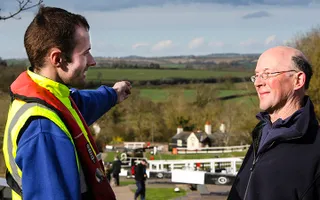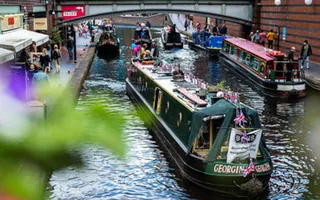This work emphasises our commitment to meeting a good standard of facilities for boaters, with our spending £2 million every year on boater services.
Enhancing Boater Services
Over the past year, we have been rolling out fully contactless payment options on pump out machines, modernising the facilities, making them more robust, and improving convenience for boaters. Across the network, over 70 of our pump out machines have been upgraded to contactless payment.
There are several areas across the canal network where we want to increase services, with 19 spots requiring Elsan provision and 12 needing refuse facilities. We will work with partners to find ways to fill these gaps, which may include making agreements with the providers of existing private facilities to open them to all boaters.
To help fund improvements at existing facilities or to provide these additional facilities in areas that currently have under provision, we must look at the viability of services in areas with overprovision. In these locations, service points that are repeatedly affected by ongoing problems such as fly tipping and vandalism, and non-essential services such as toilets and showers, may also close if damage or vandalism makes the cost of repair prohibitive.
Finally, in compliance with new Welsh Assembly waste legislation, we are required to provide separated waste and recycling facilities in Wales. To accommodate this within existing budgets, waste sites on the Monmouthshire & Brecon Canal will be consolidated, and we are proposing to introduce a new facility at Goytre Wharf. There will be no changes on the Llangollen Canal.
Providing the best possible service
Matthew Symonds, our head of customer service, said: “We are committed to providing the best possible boater facilities that we can afford. While the vast majority of our investment is to keep the network flowing and available for navigation, this year we will continue to spend around £2 million on boater facilities, with all but pump-outs free at the point of use.
“With finances so tight and the fight to Keep Canals Alive at the fore, it’s important to make the best possible use of our resources, making facilities more reliable, cutting back a few services where there are alternatives in nearby cruising range, and redoubling efforts to fill any gaps against our policy.”





